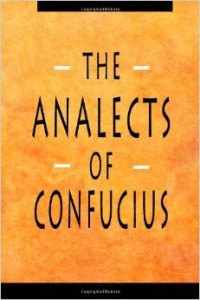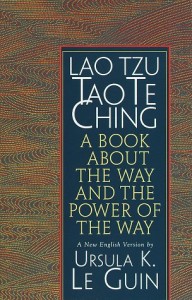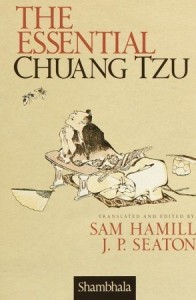 Briefness, Disconnectedness, and Suggestiveness
Briefness, Disconnectedness, and Suggestiveness
When one begins to read Chinese philosophical works, the first impression one gets is perhaps the briefness and disconnectedness of the sayings and writings of their authors. Open the Confucian Analects and you will see that each paragraph consists of only a few words, and there is hardly any connection between one paragraph and the next. Open a book containing the philosophy of Lao Tzu, and you will find that the whole book consists of about five thousand words- no longer than a magazine article; yet in it one will find the whole of his philosophy.
The purpose of the study of philosophy is to enable a man, as a man to be a man, not some particular kind of man. Other studies—not the study of philosophy—enable a man to be some special kind of man. Besides, according to Chinese tradition, the study of philosophy is not a profession. So there were no professional philosophers; and non-professional philosophers did not have to produce formal philosophical writings.
 Chinese philosophers were accustomed to express themselves in the form of aphorisms, apothegms, or allusions, and illustrations. The whole book of Lao-tzu consists of aphorisms, and most of the chapters of the Chuang-tzu are full of allusions and illustrations. Aphorisms must be very brief; allusions and illustrations must be disconnected. Aphorisms, allusions, and illustrations are thus not articulated enough. Their insufficiency in articulateness is compensated for, however, by their suggestiveness.
Chinese philosophers were accustomed to express themselves in the form of aphorisms, apothegms, or allusions, and illustrations. The whole book of Lao-tzu consists of aphorisms, and most of the chapters of the Chuang-tzu are full of allusions and illustrations. Aphorisms must be very brief; allusions and illustrations must be disconnected. Aphorisms, allusions, and illustrations are thus not articulated enough. Their insufficiency in articulateness is compensated for, however, by their suggestiveness.
Articulateness and suggestiveness are, of course, incompatible. The more an expression is articulate, the less it is suggestive, just as the more an expression is prosaic, the less it is poetic. The sayings and writings of the Chinese philosophers are so inarticulate that their suggestiveness is almost boundless.
Suggestiveness, not articulateness, is the ideal of all Chinese art, whether it be poetry, painting or anything else. In poetry what the poet intends to communicate is often not what is directly said in poetry, but what is not said in it. According to Chinese literary tradition, in good poetry “the number of words is limited but the idea it suggests is limitless.” So an intelligent reader of poetry reads what is outside the poem; and a good reader of books reads “what is inside the lines.
The ideal of Chinese art is not without its philosophical background…Words are for holding ideas, but when one has got the idea, one need no longer think about words. According to Taoism, the Tao (the Way) cannot be told, but only suggested. Words are something that should be forgotten when they have achieved their purpose. Why should we trouble ourselves with them anymore than necessary? This is true of the words and rhymes in poetry, and the lines and colours in painting. It is suggestiveness that is attractive.
A monk of the Buddhist Ch’an (or Zen school of later period) said: “The suggestiveness of the sayings and writing of the Chinese philosophy is something that can hardly be translated. When one read them in translation, one misses the suggestiveness and this means that one misses a great deal.”
 In the methodology of Chinese philosophy it has been said that there are two major concepts, that achieved by intuition and that by postulation. “A concept of intuition is “one which denotes, and the complete meaning of which is given by, something which immediately apprehended.” A concept by postulation is “one the complete meaning of which is designated by the postulates of the deductive theory in which it occurs.”
In the methodology of Chinese philosophy it has been said that there are two major concepts, that achieved by intuition and that by postulation. “A concept of intuition is “one which denotes, and the complete meaning of which is given by, something which immediately apprehended.” A concept by postulation is “one the complete meaning of which is designated by the postulates of the deductive theory in which it occurs.”
The philosophers who start with concepts by postulations have a liking for the distinct, while those who start with intuition value the indistinct. This explains why epistemology has never developed in Chinese philosophy. Whether the table that I see before me is real or illusory, and whether this is only an idea in my mind or is occupying objective space, was never seriously considered by Chinese philosophers.
This also explains why the language used by Chinese philosophy is suggestive, but not articulate. It is not articulate, because it does not represent concepts in any deductive reasoning. The philosopher only tells us what he sees. And because of this, what he tells is rich in content, though terse in words. This is the reason why his words are suggestive rather than precise.